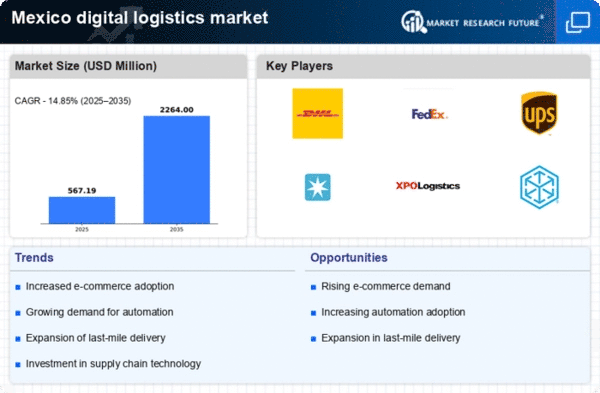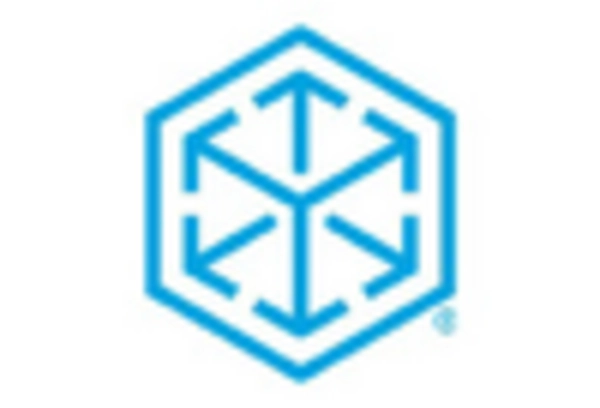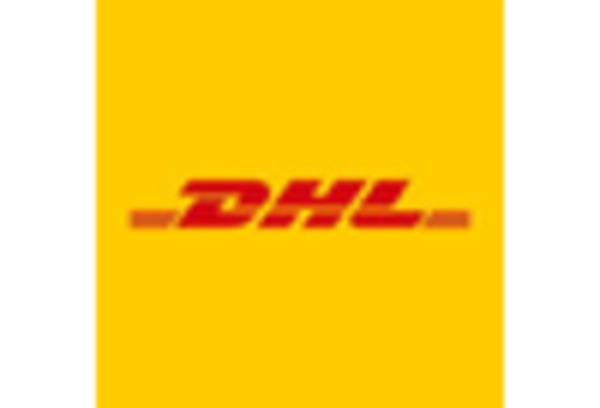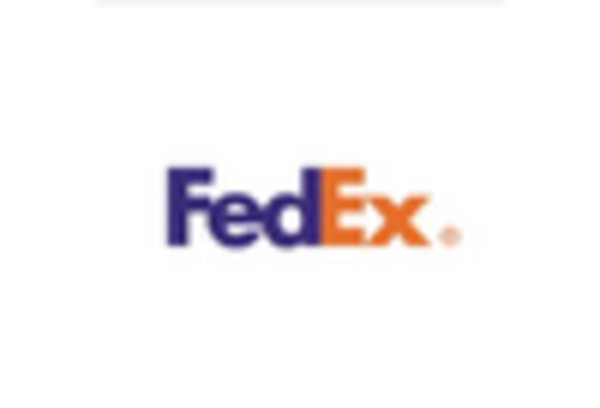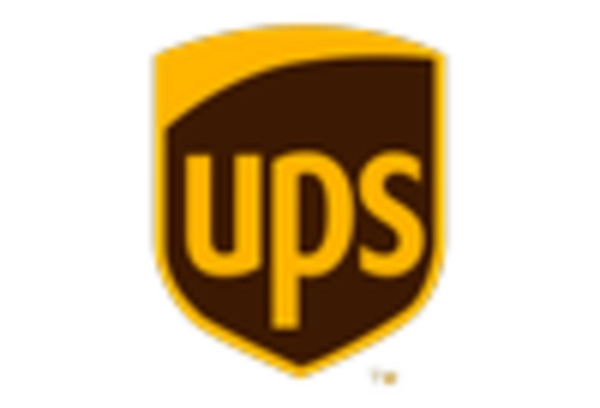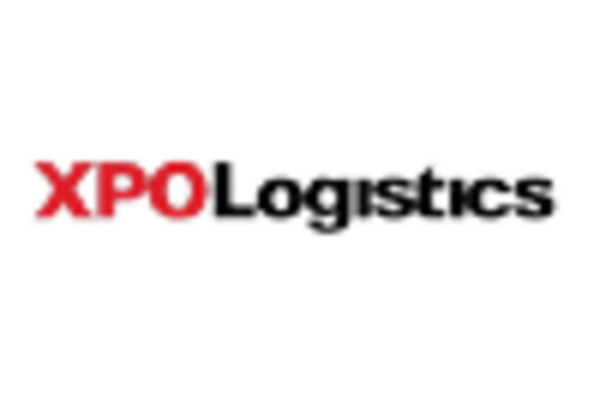E-commerce Growth
The rapid expansion of e-commerce in Mexico is a primary driver for the digital logistics market. As online shopping continues to gain traction, logistics providers are increasingly required to adapt their services to meet the demands of consumers. In 2025, e-commerce sales in Mexico are projected to reach approximately $30 billion, indicating a growth rate of around 20% annually. This surge necessitates efficient logistics solutions, including last-mile delivery and real-time tracking, which are integral to the digital logistics market. Companies are investing in technology to streamline operations and enhance customer satisfaction, thereby positioning themselves competitively in this evolving landscape.
Regulatory Changes
Regulatory frameworks in Mexico are evolving, impacting the digital logistics market. The government is implementing policies aimed at improving infrastructure and promoting digital transformation within the logistics sector. For example, initiatives to streamline customs processes and enhance trade facilitation are likely to reduce delays and costs associated with cross-border logistics. As regulations become more favorable, logistics companies are encouraged to adopt digital solutions that comply with new standards, thereby fostering growth in the digital logistics market. This regulatory environment may also attract foreign investment, further stimulating market expansion.
Urbanization Trends
The ongoing urbanization in Mexico is significantly influencing the digital logistics market. As more people migrate to urban areas, the demand for efficient logistics solutions increases. By 2025, it is estimated that over 80% of Mexico's population will reside in urban centers, creating a pressing need for optimized supply chains. This urban shift compels logistics providers to adopt digital tools that facilitate faster and more reliable deliveries. Consequently, the digital logistics market is expected to expand as companies seek to enhance their capabilities to serve densely populated regions effectively.
Consumer Expectations
Changing consumer expectations are driving the digital logistics market in Mexico. Today's consumers demand faster delivery times, greater transparency, and enhanced service quality. As a result, logistics providers are compelled to leverage digital technologies to meet these expectations. In 2025, surveys indicate that over 70% of consumers prioritize same-day or next-day delivery options. This shift in consumer behavior is prompting logistics companies to invest in digital platforms that facilitate real-time tracking and efficient order fulfillment. Consequently, the digital logistics market is likely to experience robust growth as companies strive to align their services with evolving consumer demands.
Technological Advancements
Technological innovations are reshaping the digital logistics market in Mexico. The integration of advanced technologies such as artificial intelligence (AI), Internet of Things (IoT), and blockchain is enhancing operational efficiency and transparency. For instance, AI-driven analytics can optimize route planning, reducing transportation costs by up to 15%. Furthermore, IoT devices enable real-time monitoring of shipments, which is crucial for maintaining the integrity of goods. As these technologies become more accessible, logistics companies are likely to invest heavily in digital solutions, thereby driving growth in the digital logistics market.


